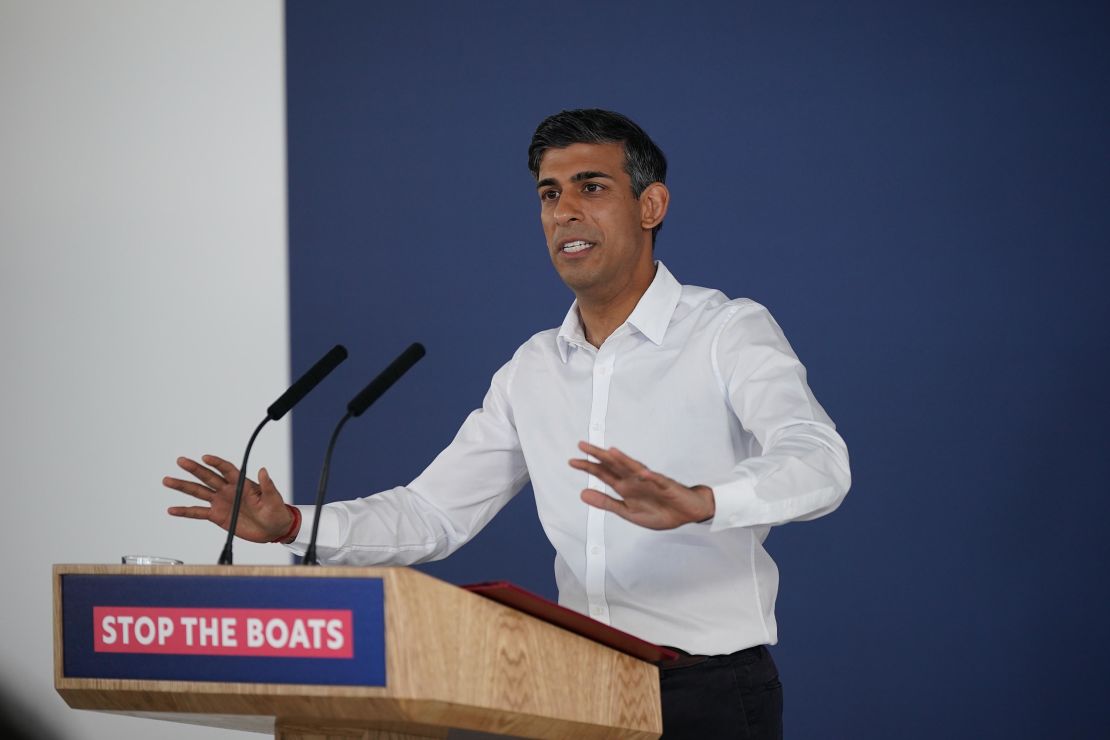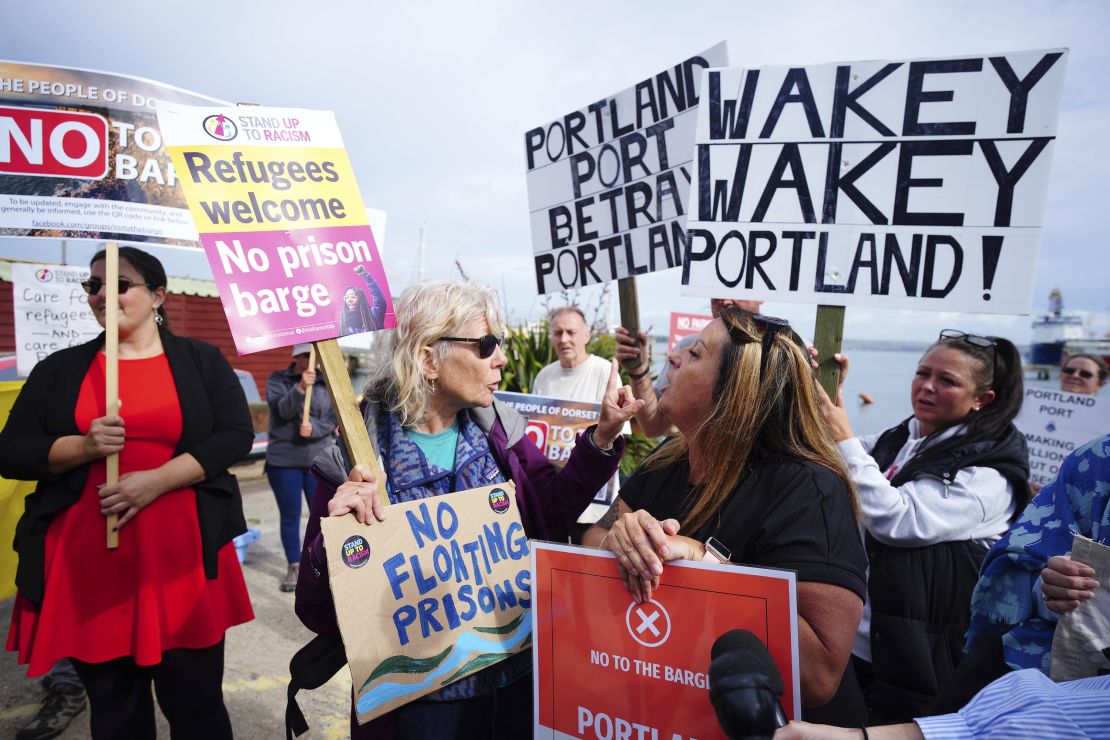A barge on which the United Kingdom government plans to house hundreds of asylum-seekers has been described as a “death trap” by the country’s Fire Brigades Union.
Prime Minister Rishi Sunak said Wednesday that final safety checks are being carried out on the vessel, which is docked in Portland, on the Dorset coast of southwest England.
The barge, named Bibby Stockholm, “will be in operation as soon as it’s passed all the checks and regulations, as soon as possible,” Sunak told LBC radio, responding to reports that the plan has been delayed.
The UK government has made stemming the flow of asylum-seekers to Britain a priority, as the number of migrants arriving on small boats across the English Channel last year reached around 46,000 – a record level.
The value of the contract given to an Australian travel firm for procuring and managing the barge, which is expected to house around 500 migrants, was revealed to be £1.6 billion (more than $2 billion).
“This is an example of me doing something different that hasn’t been tried before to help solve a serious problem,” said Sunak.

The Fire Brigades Union (FBU) said it will write to the UK Home Office on Wednesday to set out its safety concerns.
“We feel that we are looking down the barrel of another possible disaster. We believe it to be a death trap and we believe it’s another accident waiting to happen,” the FBU’s Assistant General Secretary Ben Selby told Sky News, referencing the 2017 Grenfell Tower fire, a tower block blaze in west London that killed 72 people.
“Vessels like this are not designed for large numbers like this,” Selby said, explaining that the barge has been “retrofitted” for 222 people, not the 500 people the government plans to house on it.
In the event of a fire, Selby said the union was concerned as to how a large number of people could pass through the barge’s narrow corridors and doorways. “If firefighters were needed to make entry through those narrow corridors when people were seeking to escape from it in the case of a fire, how would they even reach the seat of that fire and make the necessary rescues?” he said.
The government’s plans to house migrants on the barge has been widely criticized by human rights groups.
“Instead of wasting time on cruel and unsafe accommodation plans – like barges and abandoned military sites – this Government needs to urgently get a grip and focus their efforts on the neglected asylum system,” Natasha Tsangarides, associate director of advocacy at Freedom from Torture, said in a statement to CNN.
“People seeking sanctuary need to live in safe and dignified housing within the community, with proper access to healthcare, legal advice, and support so they can have a real chance to rebuild their lives.”
Breaking international law
The prime minister reiterated the government’s stance that using a barge to house asylum-seekers will “ease pressure in local communities” and drive down the cost of housing them in hotels.
According to figures provided to the Home Office Select Committee in October 2022, the government spends £5.6 million ($7.2 million) a day on hotel accommodation for asylum-seekers.
“The current system is simply unfair,” Sunak said. “We’ve got British taxpayers stumping up millions of pounds a day to house migrants in hotels.”

The Home Office announced plans to house around 500 single adult males on the barge in April.
“It will provide basic and functional accommodation, and healthcare provision, catering facilities and 24/7 security will be in place on board, to minimize the disruption to local communities. People whose claims are refused and have exhausted their appeal rights will be removed from the UK,” the Home Office said in a statement. It said the barge would be operational for at least 18 months and that it is in discussion with other ports and vessels.
The number of people risking the deadly crossing between Britain and France has skyrocketed in recent years. This has added to the backlog of unprocessed asylum claims in the UK, piling pressure on an immigration system which critics say is neglected and failing.
Thousands travel across the English Channel, one of the busiest shipping lanes in the world, in dinghies unfit for the dangerous voyage, hoping to claim asylum or economic opportunities in the UK. In 2022, 45,755 people crossed in small boats, according to UK government data.
In the first half of 2023, about 11,500 people were detected crossing the Channel in small boats. While that figure represents a 10% drop compared to the first half of 2022, most crossings occur during the second half of the year. Bouts of bad weather can also cause large, short term fluctuations in the number of people crossing.
The UK last month passed the Illegal Migration Bill, a controversial law that allows it to detain and remove people who enter the country illegally.
The law was criticized by the United Nations refugee agency, which said it breaks the UK’s obligations under international law and amounts to “an asylum ban.”
Under current laws, there are no “safe and legal routes” to the UK – apart from those provided by certain special schemes, like those created for specific nationalities such as Afghans and Ukrainians.


